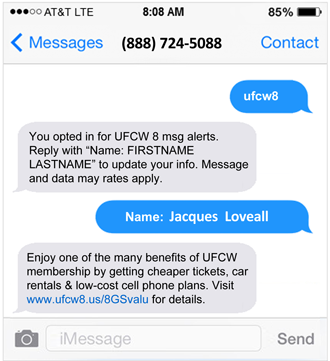You Can Refuse Dangerous Work If …
From the Office of Assistant Secretary of Labor
for Occupational Safety and Health
No American worker should have to choose between his job and his life.
The U.S. Supreme Court has upheld rules issued by the Occupational Safety and Health Administration (OSHA) which say that you have the right to refuse a dangerous work assignment … if you meet the following conditions:
-
You have reasonable belief, based on what you know at the time, that there is a real, imminent danger of death or serious physical injury. If you have good reasons that other reasonable people would recognize, you may refuse the task even if it is later found that there was no imminent danger.
- If you have asked your employer to eliminate the danger and he or she failed to do so.
- The danger is so imminent that it cannot be eliminated quickly enough through normal OSHA enforcement procedures.
- You have a reasonable alternative.
If your employer takes action against you for refusal and OSHA and the Federal Courts must later rule on your case, they will look carefully at the facts to see whether you have met these conditions.
Therefore, it is a good idea to follow, if possible, certain steps if you must refuse unsafe work:
- Talk to others and your Union Representative about the hazard. It will help your case if you tried to get other views. If they agree with you, it may strengthen your case since the danger must be one that other reasonable people would recognize. If they don’t agree with you, you may want to take their view into account. If your opinion has a reasonable basis, however, the law can still protect you even if others disagree with you.
- Calmly tell your supervisor exactly why you think there is danger and ask that it is fixed.
- Make it clear to the employer that you are refusing the assignment because of imminent danger and not for any other reason.
- Offer to do the job once it can be made safe and to do other work in the meantime.
- Do not leave the job site unless ordered by your employer.
- Call OSHA at the first opportunity. If the danger is really imminent, OSHA needs to know about it so the problem can be resolved.
If you refuse dangerous work under the conditions described above, you cannot be punished or discriminated against by your employer. That means, for example, that you cannot be fired, demoted, denied benefits, or given a less desirable job assignment as punishment.
If you believe that you have been punished or discriminated against for this reason, file a complaint with OSHA within 30 days of the time you learn of the punishment. OSHA will investigate, and if necessary, can go to court to restore your job, earnings or benefits. If that happens, you will not have to pay any legal fees.
If you refuse dangerous work, you may be protected under the National Labor Relations Board law’s also. This is especially true if you refuse in cooperation with or on behalf of other workers.
If you have been punished for refusing work, contact OSHA to discuss your case. You may want to also contact the National Labor Relations Board.
To contact OSHA look in your phone book under the United States Government, Labor Department, Occupational Safety and Health Administration or write to OSHA Headquarters, 395 Oyster Point Blvd., So. San Francisco, CA 94080; telephone: (415) 972-8500. You may also visit their website at www.osha.gov.
For more information on becoming a Shop Steward please contact us at (916) 786-0588.


